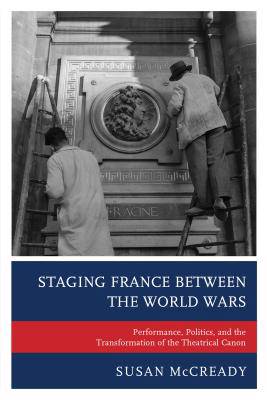
- Retrait gratuit dans votre magasin Club
- 7.000.000 titres dans notre catalogue
- Payer en toute sécurité
- Toujours un magasin près de chez vous
- Retrait gratuit dans votre magasin Club
- 7.000.0000 titres dans notre catalogue
- Payer en toute sécurité
- Toujours un magasin près de chez vous
Staging France between the World Wars
Performance, Politics, and the Transformation of the Theatrical Canon
Susan McCready
Livre relié | Anglais
178,95 €
+ 357 points
Format
Description
This book analyzes the rise of the modernist aesthetic in French stagecraft between the world wars. Focusing on interwar productions of the classics, it demonstrates that modernist directors had a significant and lasting impact on the academic canon of theater.
Spécifications
Parties prenantes
- Auteur(s) :
- Editeur:
Contenu
- Nombre de pages :
- 176
- Langue:
- Anglais
Caractéristiques
- EAN:
- 9781498522786
- Date de parution :
- 21-09-16
- Format:
- Livre relié
- Format numérique:
- Genaaid
- Dimensions :
- 160 mm x 229 mm
- Poids :
- 362 g

Les avis
Nous publions uniquement les avis qui respectent les conditions requises. Consultez nos conditions pour les avis.






